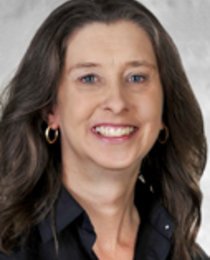Mental Health First Aid: Breaking Down Barriers and Stigma
By Kim LaFountain, LMHC
One in five Americans has a mental illness, and the pandemic has dramatically increased depression and anxiety, but many are reluctant to seek help or don’t know where to turn for care.
Symptoms of mental health and substance use problems can be difficult to detect. Friends and family members may find it hard to know when and how to step in.
Just as CPR teaches people how to help to an individual having a heart attack, Mental Health First Aid (MHFA) prepares participants to interact with a person experiencing a mental health challenge or crisis. Mental Health First Aiders learn a 5-step Action Plan that guides them through the process of reaching out and offering appropriate support.
“Never has it been more important for our communities to talk about mental health and substance use,” says Chuck Ingoglia, president and CEO of the National Council for Mental Wellbeing, which helped bring Mental Health First Aid to the U.S. in 2008. “This program is breaking down barriers and stigma so that together we can learn how to better support one another. Without mental health, there is no health.”
This week, new data from the National Council showed that 83% of the behavioral health workforce believes that shortages among behavioral health clinicians will negatively affect society as a whole. To deal with the national crisis in behavioral health, we all have to take on a role in helping friends and family members: Mental Health First Aid enables us to do this safely and effectively.
To date, more than 2.5 million people are certified Mental Health First Aiders, and that number is growing every day.
MHFA consists of three core curriculums:
MHFA for Adults – Designed for adults wishing to assist other adults.
Youth MHFA – Designed for adults who regularly interact with young people.
Teen MHFA (tMHFA) - The first of its kind developed for high school students (grades 10-12) in the United States. Teens learn the skills they need to have supportive conversations with their friends and how to get help from a responsible and trusted adult.
In addition to the core MHFA curriculums, there are also several community specific modules targeted at different populations and professions. These include fire and EMS; higher education; military; veterans and their families, older adults, public safety, tribal communities and indigenous people.
At Bradley REACH, we’re excited to offer mental health first aid training to our partners. For more general information about Mental Health First Aid, visit www.MentalHealthFirstAid.org.
For information on the Bradley Hospital Mental Health First Aid Program, click here or contact program supervisor, Kim LaFountain, LMHC at klafountain1@lifespan.org
MEET THE AUTHOR
Kim LaFountain, LMHC
Mental Health First Aid Coordinator
at Bradley Hospital


